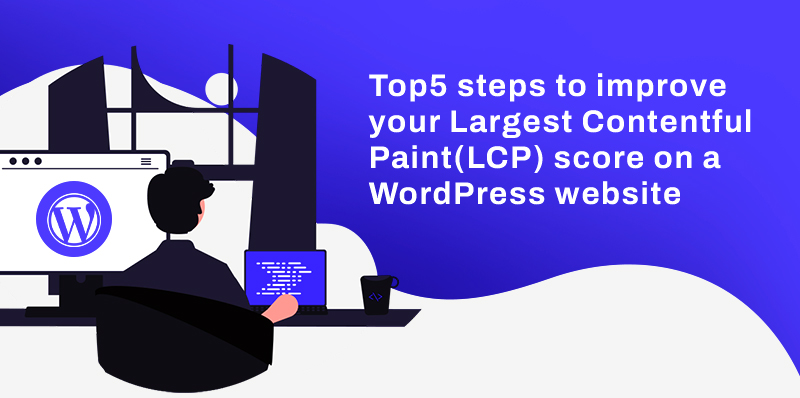Your WordPress website needs to be well-optimized, so it can get a higher ranking by Google and other search engines. A higher optimized score definitely helps your website to rank higher. One of the factors that can help you rank higher is getting a better LCP score. You would want to know what LCP is, how it can be improved, and how this would help your website. We answer all your questions in this guide.
What is LCP, and why does it matter?
Largest Contentful Paint (LCP) is one of the metrics that Google uses to rank your website. LCP measures how much time it takes to paint or load the largest content of your page on the screen. It is a known fact that users expect pages to load fast. When a page is slow to load, users are likely to leave the webpage thus increasing the bounce rate. This can have a negative effect on your search engine ranking.
When you optimize your site to load faster, you can ensure a better UX or User Experience. Improved UX helps in ranking your site higher. The LCP measure that Google expects is 2.5 seconds or lesser. So, you need to optimize your WordPress website such that it loads the largest content in less than 2.5 seconds. The question is how to do it? Read on to know 5 key steps that can help you do this.
5 steps to improve your LCP score
1. Optimize your images
Images take the most time to load. Hence, optimizing images will help you improve the LCP score. There are simple things you can do is resize your images and compress them if needed. Converting your images to the WebP format will help in optimizing them. Optimole is a tool that helps you optimize images in real-time.
2. Eliminate render-blocking resources
HTML, Javascript, and CSS files are render-blocking resources that delay the rendering of content. You can remove these elements. Alternatively, you can ensure they run after all other elements have loaded. Using WP plugins can help you do all these just by selecting options from the menu.
3. Use a CDN or Content Delivery Network
A content delivery network ensures the user gets cached copies of your content from the server nearest to them. The CDN has a network of servers across different geographical locations. Using the CDN helps in loading the page fast. If you are using Optimole, it already makes use of a CDN to deliver images. You can use a tool like RocketCDN to achieve the same results for static files.
4. Remove unused plugins
There could be plugins that impact your page load speed. Plugins that use CSS and JavaScript can do this. These plugins lead to data transfer that can be unnecessary. The result is slower rendering. Review the plugins on your website and remove those that are not needed. Where you need the plugin, look for an alternative that does not cause a page bloat.
5. Reduce your server response time
TTFB or Time To First Byte is the time taken by the browser to get the first byte of content. A TTFB of below 200 ms is what you should try to achieve. To do this, you may need to opt for dedicated hosting or use a virtual private server. Going with managed WordPress hosting is another solution you can consider.
Why MindBees for WP optimization?
When you are looking to optimize your WordPress website, then you can consider working with MindBees. While searching for a partner who can optimize your WP website, there are three criteria to consider. They are experience, expertise, and exposure. MindBees scores high on all the three, making it the ideal partner to work with. The company has rich experience in creating responsive and feature-rich websites. Working with them will help you get the best results from your WordPress development and optimization. You can improve the LCP score and look forward for a better Google ranking.

